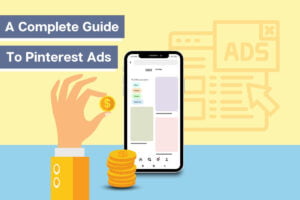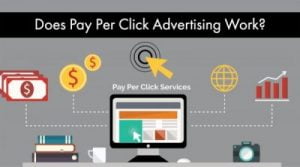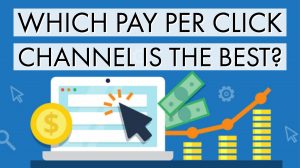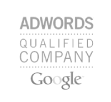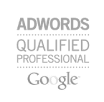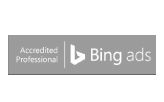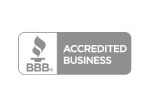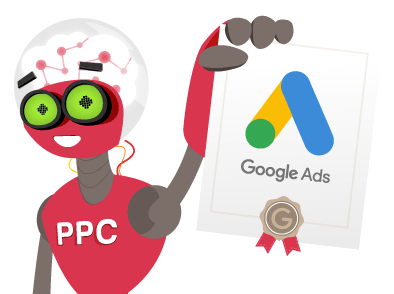Once upon a time, Google AdWords was a game changer for people investing in PPC advertising. Not only was it exceptionally effective, but it was also insanely affordable. If you got in on Google AdWords early, you and your business reaped the benefits.
Unfortunately, that’s not the way it works anymore. First of all, Google AdWords is no more. It’s now known as Google Ads—and while it’s still extremely effective at driving traffic and potential customers to your website—it’s also much more expensive. Google Ads can potentially make you a lot of money. But it can lose you a lot too.
Luckily, Google Ads isn’t the only PPC marketing tool available. Twitter, Instagram, and LinkedIn have their place but, for PPC advertising, the two companies that dominate the market are who you’d expect: Google and Facebook.
So, what makes these two platforms so effective for PPC? What are the differences between the two? And which one is best for your organization and your budget? Let’s take a look at different types of businesses, which of the two ad platforms are the more practical option, and why.
B2B Marketing
Business to business (B2B) companies provide other businesses with the goods or services they need for daily operations – or to take things to the next level. This means they have a unique audience. Rather than selling to the general public, they’re targeting businesses. More specifically, they’re targeting the people who make purchasing decisions at those businesses.
Niche Markets
A good example of a B2B niche is a facility like a nursing home. Aside from medical and care staff, think about all of the other businesses that are necessary to keep a facility like that functioning properly from day to day. They need someone to deliver medical supplies; pick up, launder, and deliver linens; provide bulk food and cooking supplies; keep office supplies stocked; and perform IT support.
So, say you own a company that provides commercial linen cleaning services or an IT consulting firm that specializes in healthcare settings. You know that nursing homes are a big part of your potential customer base, and have a very clear idea about who your ads should target.
Manufacturing is a great example of a niche B2B market too. Consider car manufacturers. Every car that comes out of the plant has a specific make and model, but the car is ultimately made up of parts sold by other businesses. Another company produced tires, batteries, hoses, paint, electronics, airbags, wiper blades, etc. If you own a company that makes automotive paint or bulk sales of car batteries, you serve a niche market.
Why does this matter? Because these businesses rely on all of the goods and services and cannot function without them. A nursing home could not operate without clean linens and food for its residents. An automotive manufacturer wouldn’t be able to produce a car without another company providing the battery and tires. These companies aren’t working with the local big box store or the mom-and-pop shop down the street. They need specific suppliers, and they often find them because of advertising.
B2B Advertising
B2B marketing is special because you’re not advertising to a consumer. Instead, you’re trying to connect with the person in charge of making purchasing decisions at the type of business your company serves. In this instance, successful marketing depends on getting the attention of the right people by showing them that you understand their business. Further, you need to show that yours is the best choice to fulfill a specific role in helping them succeed.
You don’t usually see ads on TV or online for commercial laundry services or bulk medical supply delivery. These businesses primarily advertise in trade magazines and show up to conferences and conventions.
But they have a huge online presence too.
So, if you own a company that hauls, cleans, and delivers commercial linen and you’re trying to attract the attention of the person in charge of purchasing at a nursing home, hotel, or even hospital, do you think Facebook is the best place to advertise? Do you think that the purchasing manager is scrolling through Facebook when trying to decide who to hire? Probably not.
In this case, Google Ads is the way to go. You’re trying to make the case that your product or service is going to help their bottom line and, because B2B marketing serves a niche market, you can really target lower funnel traffic. Google Ads can help you do that.
Is the CPC Worth It?
Earlier, we mentioned that the cost per click (CPC) for Google Ads is typically much more expensive than AdWords used to be.
That is true. But think about this.
If you’re paying between, say, $10 and $30 per click, yes, that is expensive. But if every successful ad brings you a contract worth thousands of dollars—and you’re able to renew that contract again and again—it’s well worth the initial CPC. Further, consider how many clicks you can afford if even just one business buys. Suddenly, the CPC doesn’t sound so steep.
What about B2B Advertising on Facebook?
Facebook is always trying to compete and has upped its game a bit when it comes to B2B advertising. You can create very specific audiences for a Facebook ad to find leads using parameters like industry, company size, job title, office type, etc. So, using our commercial laundry example, you can run an ad that only targets senior-level employees at medium-sized businesses in the healthcare industry.
This might work well for certain industries, and it’s a good way to generate top-of-the-funnel leads. So it pays to invest some B2B advertising dollars on Facebook. The CPC costs are a lot lower, but you’re probably not going to get the same quality leads that you would from Google Ads.
Remember to Retarget
Retargeting is important for Google Ads, but it’s downright essential for Facebook. Ad fatigue is real. You don’t want potential clients to roll their eyes when they see the same ad showing up on their screen for the fifth time. You’ve already invested in an ad campaign, so you might as well do everything you can to keep it interesting.
This is particularly important for Facebook because the layout is so conducive to a variety of different ad types. Switch it up from single images with catchy text to videos to carousels to keep your campaign engaging.
The Verdict
Google Ads is the better choice for B2B advertising and should constitute about 90% of your online ad budget. Spend about 10% on Facebook and monitor the CPC and leads to see if it’s productive to change the ration to 95/5 or 85/15.
B2C Marketing
It may come as no surprise that Facebook is king when it comes to business to consumer (B2C) marketing. The main reason? The CPC is so much more affordable than Google Ads and, unlike B2B ads, you aren’t likely to make thousands of dollars from a single interaction with a customer to make up for it.
One thing to note is that Facebook usually delivers higher-funnel traffic so, while more people are seeing your ads and maybe even clicking on them, the conversion rate is usually lower than with Google Ads. But, it’s so affordable, it tends to even out in the long run.
Exceptions of When to Use Google Ads for B2C
Some B2C businesses are better served by Google Ads and, again, this boils down to niche markets. Why? Because, by definition, niche markets are small. The market is limited, and you need the best targeting you can find. That’s Google Ads.
The smaller your audience, the more difficult it is for Facebook to identify it, which means you won’t get the best traffic and definitely not the number of conversions you’re looking for.
Another thing to think about is whether or not your product is something people buy on impulse or something they put a lot of time into thinking about buying first. Most consumers put a lot of time into researching a new car. But they’re usually willing to buy clothes, food, or home decor on a whim.
Usually, the more expensive the product, the more research the consumer is likely to do. Obviously, they turn to Google to do that research. That means for big-ticket items like appliances, cars, or anything that’s considered expensive, Google Ads is probably a better choice. Consumers are not likely to see an ad for a refrigerator pop up in their Facebook feed and think, “Huh, you know, I do need a new fridge…” But they are likely to see a shirt, purse, piece of jewelry, or pair of shoes they like and make an impulse purchase. In this way, you can see that price and impulsivity can dictate where your ad dollars are better spent.
Always Consider the Data
If you’re running B2B ads and have more success on Facebook than Google, by all means, change your budget to whatever gets you the best results. To be a smart online marketer, you have to analyze the data so you know where your money is going, how successful your ads can be, and what changes you need to make.
That said, it’s best to have a decent starting point. For B2B advertising, we suggest going heavy on Google Ads and investing a little on Facebook to start. Watch how the ads perform and increase the Facebook budget if it seems like the ads are performing well, and you’re seeing profit and conversions.
For B2C campaigns, go big with Facebook and put about 10 to 20% of the budget into Google Ads. The exception to this is if you’re selling a niche product or something really expensive, say, over $500. Then, put about 10 to 20% into Facebook and the rest targeting your niche market on Google Ads.
Pay close attention to the data. If your ads are losing engagement, it’s time to retarget and mix things up a bit. Monitor results carefully and adjust your budget when necessary.
Have fun and good luck!
Related Posts You Might Want To Read

